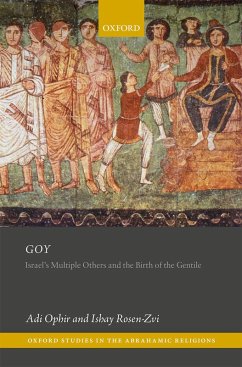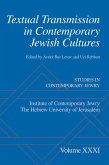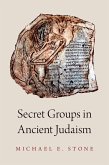Goy: Israel's Others and the Birth of the Gentile traces the development of the term and category of the goy from the Bible to rabbinic literature. Adi Ophir and Ishay Rosen-Zvi show that the category of the goy was born much later than scholars assume; in fact not before the first century CE. They explain that the abstract concept of the gentile first appeared in Paul's Letters. However, it was only in rabbinic literature that this category became the center of a stable and long standing structure that involved God, the Halakha, history, and salvation. The authors narrate this development through chronological analyses of the various biblical and post biblical texts (including the Dead Sea scrolls, the New Testament and early patristics, the Mishnah, and rabbinic Midrash) and synchronic analyses of several discursive structures. Looking at some of the goy's instantiations in contemporary Jewish culture in Israel and the United States, the study concludes with an examination of the extraordinary resilience of the Jew/goy division and asks how would Judaism look like without the gentile as its binary contrast.
Dieser Download kann aus rechtlichen Gründen nur mit Rechnungsadresse in A, B, BG, CY, CZ, D, DK, EW, E, FIN, F, GR, HR, H, IRL, I, LT, L, LR, M, NL, PL, P, R, S, SLO, SK ausgeliefert werden.









